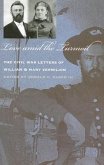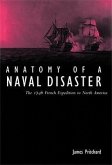The truism that history is written by its winners reflects the literature about how the bomb came about, with apologetic books most often written by U.S. scholars. The physicist Robert Oppenheimer, the nuke's 'father', is repeatedly centre stage, as in the case of the recent film about him. These are elitist stories that more often than not ignore the suffering and violence of the bomb to laypeople in general, and to marginalised groups in particular. Starting with the gruesome mining of uranium by First Nation people in northern Canada, and continuing with the racialist culture of uranium enrichment in the Atomic City of Oak Ridge, Peder Anker offers alternative perspectives. It's a story of how the bikini swimwear came to fetishise the nuclear bombardment of the Bikini Atoll with its celebration of 'sex bombs' and (an)atomic 'bombshells'. Our current global warming fears also harbour back to ordinary citizens wondering if atomic bombs would blow up the entire sky. If some of this was news to you, it might have to do with how the story of nuclear bombs has been told.
Hinweis: Dieser Artikel kann nur an eine deutsche Lieferadresse ausgeliefert werden.
Hinweis: Dieser Artikel kann nur an eine deutsche Lieferadresse ausgeliefert werden.








